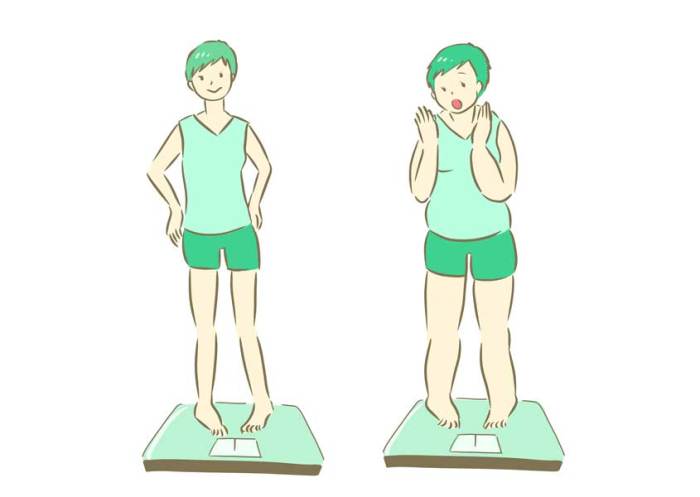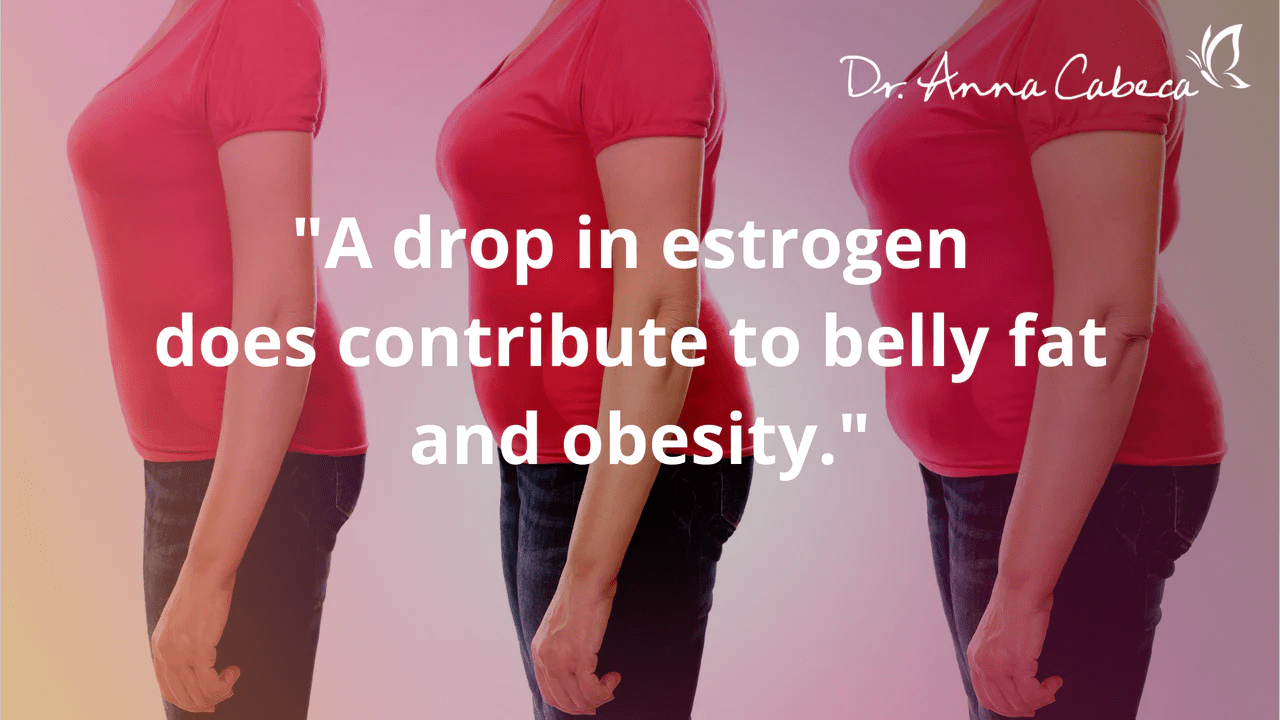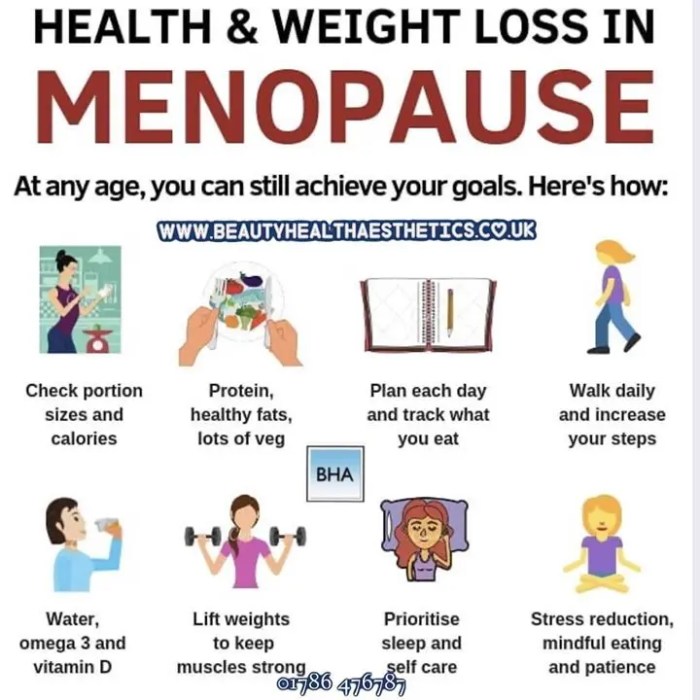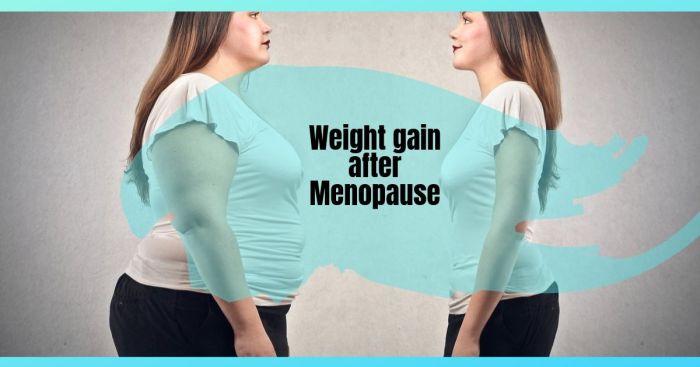Weight gain after menopause is a common and often frustrating experience for many women. As we transition through this significant life stage, our bodies undergo a series of hormonal and metabolic changes that can lead to unwanted weight gain. Understanding these changes and implementing effective strategies can help us navigate this journey with confidence and maintain a healthy weight.
Menopause marks a significant shift in a woman’s life, bringing with it a myriad of physical, emotional, and hormonal changes. One of the most common concerns during this time is weight gain. This article will delve into the complexities of weight gain after menopause, exploring the contributing factors, offering practical solutions, and empowering women to take control of their health and well-being during this transformative phase.
Hormonal Changes and Metabolism
Menopause is a time of significant hormonal changes that can impact metabolism and weight. Estrogen and progesterone, the primary female sex hormones, play crucial roles in regulating weight.
Estrogen and Weight Regulation
Estrogen helps maintain a healthy weight by promoting satiety, reducing cravings, and increasing metabolism. It also influences body fat distribution, favoring the storage of fat in the hips and thighs rather than the abdomen.
Progesterone and Weight Regulation
Progesterone counteracts the effects of estrogen, promoting hunger and fluid retention. It also slows down metabolism and can lead to weight gain. During menopause, progesterone levels decline, which can contribute to weight gain.
Impact of Hormonal Changes on Appetite, Energy Levels, and Body Composition
The hormonal changes of menopause can lead to:
- Increased appetite
- Reduced energy levels
- Changes in body composition, with increased abdominal fat and decreased muscle mass
Dietary and Lifestyle Modifications to Mitigate Metabolic Effects
To mitigate the metabolic effects of hormonal changes during menopause, consider the following:
- Increase fiber intake:Fiber promotes satiety and helps regulate blood sugar levels.
- Choose lean protein:Protein helps build and maintain muscle mass, which boosts metabolism.
- Limit processed foods and sugary drinks:These foods can contribute to weight gain and inflammation.
- Engage in regular exercise:Exercise helps burn calories, build muscle, and improve metabolism.
- Get enough sleep:Sleep deprivation can disrupt hormones that regulate appetite and metabolism.
Changes in Body Composition
As you enter menopause, your body undergoes significant changes in composition. One of the most noticeable changes is a shift from lean muscle mass to body fat.
This change is due to several factors, including:
- Decline in estrogen levels:Estrogen helps to maintain muscle mass. As estrogen levels decline during menopause, muscle mass can decrease.
- Increase in cortisol levels:Cortisol is a stress hormone that can lead to muscle loss.
- Decrease in physical activity:Many women become less active as they age, which can also lead to muscle loss.
The loss of muscle mass and the gain of body fat can contribute to weight gain during menopause.
Key Changes in Body Composition During Menopause
| Body Component | Change |
|---|---|
| Lean muscle mass | Decrease |
| Body fat | Increase |
| Body fat distribution | Shift from hips and thighs to abdomen |
Tips for Maintaining Muscle Mass and Minimizing Body Fat During Menopause
- Engage in regular exercise:Exercise helps to build and maintain muscle mass. Aim for at least 150 minutes of moderate-intensity exercise or 75 minutes of vigorous-intensity exercise per week.
- Eat a healthy diet:A healthy diet that is rich in protein and low in processed foods can help to maintain muscle mass and minimize body fat.
- Get enough sleep:Sleep is essential for muscle recovery. Aim for 7-8 hours of sleep per night.
- Manage stress:Stress can lead to the release of cortisol, which can break down muscle tissue. Find healthy ways to manage stress, such as exercise, yoga, or meditation.
Decreased Physical Activity
After menopause, many women experience a decline in their physical activity levels. This can be attributed to several factors, including hormonal changes, decreased energy levels, and changes in lifestyle.
Research indicates that postmenopausal women tend to engage in less physical activity compared to premenopausal women. Studies show that the average decline in physical activity levels ranges from 20% to 30% after menopause.
Reasons for the Decline in Physical Activity
- Menopausal Symptoms:Symptoms like hot flashes, night sweats, and mood swings can make it challenging to engage in physical activity.
- Decreased Energy Levels:Hormonal changes and other factors can lead to reduced energy levels, making it difficult to find the motivation to exercise.
- Changes in Lifestyle:As women transition into menopause, they may experience changes in their family and work responsibilities, which can affect their time and energy available for physical activity.
- Pain and Discomfort:Some women experience joint pain and discomfort during menopause, which can limit their ability to engage in physical activities.
The decline in physical activity can contribute to weight gain, as it reduces the body’s energy expenditure. This, combined with the other factors associated with menopause, can make it challenging for women to maintain a healthy weight during this transition.
Emotional Eating
Menopause can trigger emotional eating due to hormonal imbalances, stress, and changes in mood. Estrogen and progesterone, hormones that decline during menopause, play a role in regulating appetite and emotional well-being.
Triggers for emotional eating include stress, anxiety, depression, boredom, and loneliness. When experiencing these emotions, individuals may turn to food for comfort, solace, or distraction.
Coping Mechanisms for Emotional Eating
- Identify Triggers:Recognize the emotions and situations that trigger emotional eating.
- Practice Mindful Eating:Pay attention to hunger cues and eat slowly, savoring each bite. This helps reduce overeating.
- Find Alternative Coping Mechanisms:Engage in activities that provide stress relief, such as exercise, yoga, or spending time with loved ones.
- Seek Professional Help:If emotional eating persists or significantly impacts daily life, consider seeking therapy or counseling.
Sleep Disturbances
Sleep disturbances are common among postmenopausal women. These include difficulty falling asleep, staying asleep, or waking up too early. These problems can lead to sleep deprivation, which can have a number of negative consequences, including weight gain.
How Sleep Deprivation Can Lead to Weight Gain
Sleep deprivation can lead to weight gain in a number of ways. First, it can disrupt the body’s hormonal balance, leading to an increase in the production of the hormone cortisol. Cortisol is a stress hormone that can lead to increased appetite and cravings for unhealthy foods.
Second, sleep deprivation can reduce the body’s production of leptin, a hormone that signals fullness. This can lead to increased hunger and overeating. Third, sleep deprivation can interfere with the body’s ability to regulate blood sugar levels, which can lead to increased cravings for sugary foods.
Medications
Medications play a significant role in weight gain after menopause. Certain types of medications can cause weight gain as a side effect, influencing hormonal balance, metabolism, and other bodily functions.
The mechanisms by which these medications contribute to weight gain vary. Some medications may increase appetite, while others can slow down metabolism or cause fluid retention.
Antidepressants
- Selective serotonin reuptake inhibitors (SSRIs):Fluoxetine (Prozac), sertraline (Zoloft), citalopram (Celexa)
- Serotonin-norepinephrine reuptake inhibitors (SNRIs):Venlafaxine (Effexor), duloxetine (Cymbalta)
- Tricyclic antidepressants (TCAs):Amitriptyline (Elavil), imipramine (Tofranil)
These medications increase serotonin levels in the brain, which can lead to increased appetite and cravings for carbohydrates.
Antipsychotics
- Atypical antipsychotics:Olanzapine (Zyprexa), quetiapine (Seroquel), risperidone (Risperdal)
- Typical antipsychotics:Chlorpromazine (Thorazine), haloperidol (Haldol)
Antipsychotics can block dopamine receptors in the brain, leading to increased appetite and decreased metabolism.
Steroids, Weight gain after menopause
- Glucocorticoids:Prednisone, dexamethasone
- Anabolic steroids:Testosterone, nandrolone
Steroids can increase appetite and cause fluid retention, leading to weight gain.
Other Medications
- Hormone replacement therapy (HRT):Estrogen, progesterone
- Anti-diabetic medications:Insulin, sulfonylureas
- Anti-seizure medications:Valproic acid, gabapentin
These medications can have varying effects on weight, depending on the individual and the specific medication used.
It’s important to note that the potential interactions between these medications and other factors, such as diet and lifestyle, can exacerbate weight gain. For example, taking antidepressants with a high-carbohydrate diet can increase the risk of weight gain.
The evidence supporting the link between these medications and weight gain is substantial. Numerous studies have shown that these medications can cause significant weight gain, particularly in long-term use.
Diet and Nutrition
Menopause marks a significant hormonal shift in women’s lives, and these changes can significantly impact their nutritional needs and metabolism. To maintain a healthy weight and overall well-being during this transition, it’s essential to adopt a balanced and nutrient-rich diet.
Menopause can lead to a whole host of weight-related issues, including weight gain. This is due to a number of factors, including hormonal changes and a decrease in metabolism. If you’re over 40 and struggling to lose weight, it’s important to be aware of these changes and how they can affect your body.
Weight loss after 40 female hormone changes can be challenging, but it’s not impossible. With the right approach, you can reach your weight loss goals and improve your overall health.
Guidelines for a Healthy Diet
*
-*Prioritize Nutrient-Rich Foods
Focus on consuming fruits, vegetables, whole grains, and lean protein sources. These foods provide essential vitamins, minerals, antioxidants, and fiber, which are crucial for maintaining overall health and preventing chronic diseases.
-*Control Portion Sizes
Menopause can trigger a stubborn weight gain that can be frustrating to shed. If you’re over 40 and looking to lose weight, check out our Meal plan for weight loss over 40 . It’s packed with tips and tricks to help you reach your goals.
With the right approach, you can overcome the weight gain associated with menopause and feel your best again.
While nutrient-rich foods are essential, it’s equally important to pay attention to portion sizes. Overeating, even of healthy foods, can contribute to weight gain. Use measuring cups and spoons to ensure appropriate portion sizes and avoid overindulgence.
Exercise and Fitness: Weight Gain After Menopause
As we age, our bodies undergo various changes, including a decline in metabolism and an increase in body fat. These changes, coupled with hormonal fluctuations during menopause, can make it challenging to maintain a healthy weight. Regular exercise plays a crucial role in weight management during this stage of life.
Postmenopausal women should aim for at least 150 minutes of moderate-intensity aerobic activity or 75 minutes of vigorous-intensity aerobic activity per week. Weight-bearing exercises, such as walking, jogging, dancing, and strength training, are also essential for building and maintaining muscle mass.
Menopause can trigger weight gain, but it’s not an inevitable fate! While weight loss challenges for women over 40 are real, they can be overcome. By understanding the hormonal changes that occur during menopause and adopting a healthy lifestyle, you can maintain a healthy weight and feel your best.
Types of Exercise Suitable for Postmenopausal Women
- Walking:Walking is a low-impact, easy-to-do exercise that can be enjoyed by most people. It helps burn calories, strengthen bones, and improve cardiovascular health.
- Jogging:Jogging is a more vigorous form of walking that can help burn more calories and improve cardiovascular fitness.
- Dancing:Dancing is a fun and social way to get exercise. It can help improve balance, coordination, and flexibility.
- Strength training:Strength training helps build and maintain muscle mass, which is essential for burning calories and preventing weight gain.
- Yoga:Yoga is a mind-body practice that can help improve flexibility, balance, and strength. It can also help reduce stress, which can contribute to weight gain.
- Pilates:Pilates is a low-impact exercise that focuses on core strength, flexibility, and balance. It can help improve posture and reduce back pain.
- Swimming:Swimming is a great way to get a full-body workout without putting stress on your joints. It can help improve cardiovascular health, build muscle, and burn calories.
Benefits of Regular Exercise for Weight Management
- Increased calorie burn:Exercise helps you burn calories, which can lead to weight loss or maintenance.
- Increased muscle mass:Exercise helps build and maintain muscle mass, which is essential for burning calories and preventing weight gain.
- Improved metabolism:Exercise can help improve your metabolism, which means you burn more calories even at rest.
- Reduced stress:Exercise can help reduce stress, which can contribute to weight gain.
- Improved sleep:Exercise can help improve sleep, which is important for weight management.
Lifestyle Modifications
Embracing menopause doesn’t have to mean surrendering to weight gain. Lifestyle modifications can empower you to manage your weight and enhance your overall well-being. Let’s dive into some practical changes that can make a significant difference.
Stress Management
Stress can wreak havoc on your hormones and trigger cravings. Incorporate stress-reducing techniques into your routine, such as:
- Yoga or meditation
- Deep breathing exercises
- Spending time in nature
- Connecting with loved ones
Sleep Hygiene
Quality sleep is crucial for weight management. Aim for 7-9 hours of restful sleep each night. Establish a regular sleep-wake cycle, create a relaxing bedtime routine, and optimize your sleep environment.
Healthy Habits
Small, consistent changes can accumulate over time. Consider the following:
- Hydrate adequately with water throughout the day.
- Choose nutrient-rich foods over processed options.
- Engage in regular physical activity that you enjoy.
- Limit alcohol consumption and sugary drinks.
- Seek support from friends, family, or a healthcare professional when needed.
Medical Conditions
Certain medical conditions can contribute to weight gain after menopause. Understanding the symptoms and treatment options for these conditions is crucial for effective weight management.
Thyroid Conditions
- Hypothyroidism:Decreased thyroid hormone production, leading to slowed metabolism and weight gain.
- Symptoms:Fatigue, weight gain, constipation, dry skin, hair loss.
- Treatment:Thyroid hormone replacement therapy.
Cushing’s Syndrome
- Excessive cortisol production:Can lead to weight gain, particularly around the face, neck, and trunk.
- Symptoms:Weight gain, moon face, buffalo hump, high blood pressure.
- Treatment:Surgery, radiation, or medication to reduce cortisol levels.
Polycystic Ovary Syndrome (PCOS)
- Hormonal imbalance:Can lead to weight gain, irregular periods, and fertility issues.
- Symptoms:Weight gain, irregular periods, acne, excessive hair growth.
- Treatment:Lifestyle changes, medication to regulate hormones, and fertility treatments.
Sleep Apnea
- Interrupted sleep:Can lead to hormonal imbalances, increased appetite, and weight gain.
- Symptoms:Snoring, daytime sleepiness, difficulty breathing during sleep.
- Treatment:Lifestyle changes, breathing devices, or surgery.
Tips for Managing Weight Gain Due to Medical Conditions
- Seek professional medical evaluation to identify any underlying conditions.
- Follow prescribed treatments and lifestyle recommendations.
- Make gradual changes to diet and exercise habits.
- Prioritize sleep hygiene and manage stress.
- Avoid fad diets or quick fixes.
Talking to Your Doctor
If you’re experiencing unexplained weight gain after menopause, it’s important to discuss it with your doctor. Be prepared to provide details about your symptoms, medical history, and lifestyle habits. Your doctor can assess your overall health, order tests to rule out any medical conditions, and recommend appropriate treatment options.
Provide examples of positive body image and self-esteem interventions for postmenopausal women.
Positive body image and self-esteem interventions can help postmenopausal women improve their body image and overall well-being. These interventions typically focus on changing negative body image thoughts and behaviors, and promoting positive body acceptance and self-esteem.One common type of intervention is cognitive-behavioral therapy (CBT).
CBT helps women identify and challenge negative body image thoughts, and develop more positive and realistic body image beliefs. Another common type of intervention is mindfulness-based body awareness training (MBBAT). MBBAT teaches women to focus on their bodies in a non-judgmental way, and to accept their bodies as they are.There
is evidence to suggest that positive body image and self-esteem interventions can be effective in improving body image and self-esteem in postmenopausal women. A study published in the journal “Menopause” found that CBT was effective in reducing body dissatisfaction and improving body image in postmenopausal women.
Another study published in the journal “The American Journal of Geriatric Psychiatry” found that MBBAT was effective in reducing body dissatisfaction and improving self-esteem in postmenopausal women.The following table summarizes the key findings of these studies:| Intervention | Outcomes ||—|—|| CBT | Reduced body dissatisfaction, improved body image || MBBAT | Reduced body dissatisfaction, improved self-esteem |These findings suggest that positive body image and self-esteem interventions can be helpful for postmenopausal women who are struggling with body image issues.
Healthcare professionals should be aware of these interventions and consider referring women to them if they are struggling with body image or self-esteem.
Case Studies and Success Stories
Menopause is a significant transition that can lead to weight gain for many women. However, it’s important to remember that weight management after menopause is possible with the right approach.
To inspire and motivate you, here are some real-life case studies of women who have successfully managed weight gain after menopause:
Sarah’s Story
- Sarah struggled with weight gain and low self-esteem after menopause.
- She made gradual lifestyle changes, including reducing processed foods and increasing exercise.
- Sarah lost 20 pounds and improved her overall health and well-being.
Maria’s Journey
- Maria experienced significant weight gain after menopause due to hormonal changes.
- She sought support from a registered dietitian and developed a personalized nutrition plan.
- Maria lost 30 pounds and regained her confidence and energy.
Before-and-After Photos
Visual evidence can be incredibly motivating. Here are before-and-after photos of women who have successfully managed weight gain after menopause:
[Insert before-and-after photos here]
These success stories demonstrate that weight management after menopause is possible with the right mindset and support.
Resources and Support
Navigating the challenges of postmenopause can be overwhelming, but you don’t have to do it alone. Numerous resources and support groups are available to provide guidance, encouragement, and practical assistance.
Seeking professional help from a healthcare provider or therapist can be invaluable. They can help you manage symptoms, address underlying health conditions, and develop coping mechanisms for emotional challenges.
Support Groups
| Organization | Contact | Website | Description |
|---|---|---|---|
| North American Menopause Society (NAMS) | 1-800-294-NAMS | https://www.menopause.org | Provides educational materials, support groups, and a directory of healthcare professionals specializing in menopause. |
| International Menopause Society (IMS) | +44 (0) 20 8980 6333 | https://www.imsociety.org | A global organization that promotes research, education, and clinical practice in menopause. |
| Postmenopausal Health Association (PMA) | 1-800-622-6356 | https://www.postmenopause.org | Offers support, education, and advocacy for women experiencing postmenopausal symptoms. |
These groups provide a safe and supportive environment where you can connect with others going through similar experiences, share your concerns, and learn from their insights.
Common Concerns and Challenges
Postmenopausal women often face unique concerns and challenges, such as:
- Hot flashes and night sweats
- Mood swings and irritability
- Sleep disturbances
- Weight gain
- Osteoporosis
- Heart disease
- Loss of libido
If you’re experiencing any of these issues, don’t hesitate to seek help. There are effective treatments and coping mechanisms available.
Tips for Coping
- Stay physically active
- Eat a healthy diet
- Get enough sleep
- Manage stress
- Connect with others
- Practice self-care
Self-care and stress management are essential for postmenopausal women. Engage in activities that bring you joy and relaxation, such as yoga, meditation, or spending time in nature.
Closure
Managing weight gain after menopause requires a multifaceted approach that encompasses dietary modifications, regular exercise, and lifestyle adjustments. By understanding the underlying causes and implementing tailored strategies, women can effectively address this common challenge. Remember, menopause is not a time to fear but rather an opportunity to embrace change, prioritize self-care, and emerge with a renewed sense of vitality and well-being.
FAQ Guide
Why do women gain weight after menopause?
Menopause triggers hormonal changes, such as a decline in estrogen and progesterone, which can lead to increased appetite, decreased metabolism, and a shift in body composition toward more body fat.
What are some tips for managing weight gain after menopause?
Focus on a balanced diet rich in fruits, vegetables, and whole grains. Engage in regular physical activity, such as brisk walking or swimming. Prioritize stress management techniques like yoga or meditation.
Is it possible to prevent weight gain after menopause?
While weight gain is common during menopause, it is not inevitable. Maintaining a healthy lifestyle before and during menopause, including a nutritious diet and regular exercise, can help minimize weight gain.





